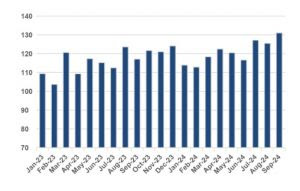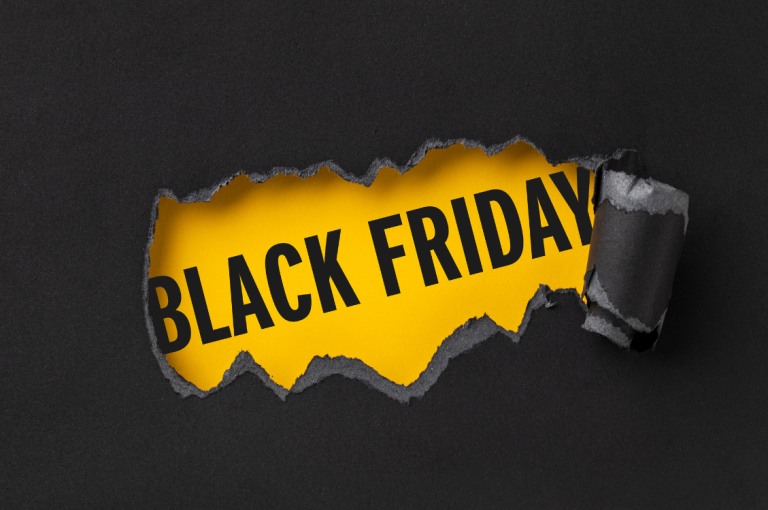O Índice Omie de Desempenho Econômico das PMEs (IODE-PMEs) aponta alta de 11,9% da movimentação financeira das pequenas e médias empresas (PMEs) brasileiras em setembro de 2024, na comparação com o mesmo período do ano anterior. No acumulado do ano, o índice registra aumento de 5,8% frente ao mesmo período de 2023.
Figure 1: IODE-SMEs
(Index number 2021=100)

Source: IODE-PMEs (Omie)
The IODE-PMEs works as an economic thermometer of companies with revenues of up to R$50 million annually, divided into 701 economic activities that make up four major sectors: Commerce, Industry, Infrastructure and Services.
Felipe Beraldi, economista e gerente de Indicadores e Estudos Econômicos da Omie, plataforma de gestão (ERP) na nuvem, indica que a escalada das PMEs em setembro foi disseminada entre os setores. “A manutenção de sinais positivos no ambiente macroeconômico brasileiro na ótica do mercado de trabalho e renda das famílias segue impulsionando o desempenho das PMEs, ao mesmo tempo em que a confiança dos consumidores, medido pelo indicador da FGV (ICC-FGV), se mostra em alta no período recente, reforçando o contexto positivo para o consumo”, contextualiza.
O destaque foi para o Comércio, que registrou evolução de 19,2% em setembro na comparação anual – até então um dos melhores resultados do segmento em 2024. “A recuperação consistente nos últimos meses, tanto no atacado quanto no varejo, sugere um final de ano promissor para as PMEs do setor. Esse contexto eleva as expectativas para o impacto de datas sazonais, como a Black Friday, na receita das empresas nos próximos meses”, explica o economista.
As PMEs industriais, retornaram ao campo positivo em setembro, após um recuo pontual no mês anterior, registrando um progresso de 11,8% na comparação anual. Entre os 22 subsegmentos monitorados da indústria de transformação, 18 apresentaram aumento no faturamento, em maior evidência as atividades de ‘Fabricação de móveis’, ‘Fabricação de produtos de metal’ e ‘Fabricação de celulose e produtos de papel’.
Já no setor de Serviços, as PMEs avançaram 7,3% em setembro, sendo importante ressaltar a base de comparação elevada de 2023 devido à recuperação que o setor já apresentava naquele momento. No mês, o desempenho foi puxado pela melhora das ‘Atividades administrativas’ e ‘Atividades de entrega’.
Por fim, as PMEs do setor de Infraestrutura registraram um incremento de 11,3% na movimentação financeira real em setembro. Os segmentos de ‘Eletricidade’ e ‘Serviços especializados para construção’ predominaram para o avanço do setor durante todo o terceiro trimestre.
O resultado positivo no último mês contribui para a manutenção positiva do faturamento das PMEs brasileiras no curto prazo. “Mesmo com as perspectivas de aumento das pressões inflacionárias e das taxas de juros, fatores como a confiança dos consumidores em alta e persistência da taxa de desemprego em níveis historicamente baixos devem sustentar a continuidade do crescimento das PMEs nos próximos meses”, prevê Beraldi.











